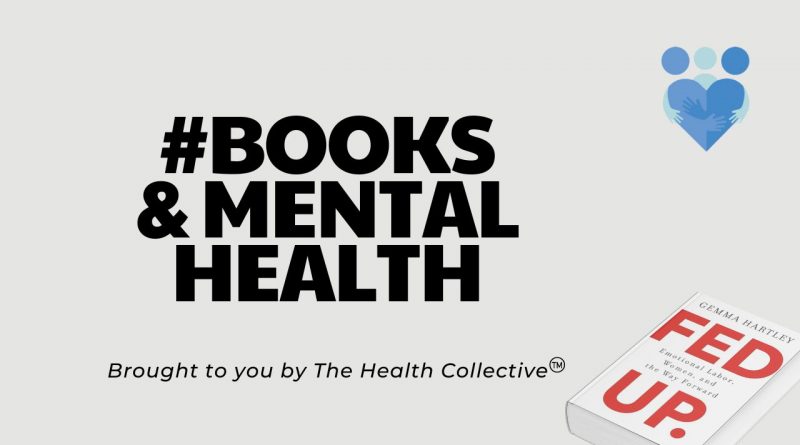Fed Up: A Book that Unpacks Emotional Labour
By Asma G
“Stop being such a nag,” my cousin says to his wife when she reminds him to go grocery shopping, while he’s using his laptop. I feel my hackles rise; an involuntary reaction I always have in response to someone being called a ‘nag’. Funnily enough, I have never heard a man being referred to as a nag. Somehow, it’s always a woman supposedly doing the nagging.
I came across Gemma Hartley’s book Fed Up fairly recently and was intrigued by the cover which has a laundry list of tasks-–clean bathroom, pick up kids, vacuum house, cook dinner, do the dishes, buy groceries, pack lunches, do laundry, send reminders-–prominently displayed on the cover.
When I was younger, I would have overlooked the book entirely, relegating it as something irrelevant to me. Now, at the cusp of turning 30, I find myself in a unique position-–I am raising my nephew and niece with my sister. As a primary caregiver for my pre-teen nephew, I am surrounded by child-free friends in their late-twenties and early thirties who don’t understand why I am constantly exhausted.
INVISIBLE LABOUR IS LABOUR
I have a running list in my mind of all the things that need doing. The list contains a gamut of tasks right from important considerations like checking the kids’ vaccine schedules, making sure they have regular bowel movements (it sounds unpleasant but someone has to do it), to the seemingly inane, like keeping track of my nephew’s friends’ birthdays and getting them gifts, making sure he has the right socks for school, and keeping track with the latest happenings in his grade.
Keeping track of the birthdays of my nephew’s friends may seem inconsequential to someone who hasn’t been a caregiver for a young child but it is in fact quite important. A forgotten birthday means hurt feelings, especially if other kids in the friend group remember (read: their parents remember), which in turn means a strained friendship, and sometimes the end of a friendship. I’d rather not subject my nephew to that. (Fun fact: when buying presents for kids, you have to take their younger siblings into consideration as well, lest they fight over the gift at home and end the day in tears.)
I was struck by how my father recently dismissed all that I do for the children, saying that I was “free now since I was not doing anything”-–his interpretation of my decision to take a break from trading in the stock market for some time. A friend who hasn’t had much experience with children recently told me that my nephew should be more independent now that he’s nearly a teen and that doing too much for him is “coddling” him.
My father’s comment rankles and my friends’ lack of understanding is a constant source of frustration. The truth is that I always have a seemingly endless list of chores to do, but nothing to show for it apart from a healthy niece and nephew. In fact, the only person who understands my frustration is my mother. Having raised my siblings and myself as a stay-at-home mother, she is well aware of the exhaustion I feel.
I know that I have it quite easy in comparison to a lot of women who are married, irrespective of whether or not they have children because my sister and I share the responsibility of taking care of the kids. My female friends go from being responsible for themselves before marriage to suddenly becoming responsible for themselves and their husbands’ well being after marriage. This is something I have never understood, given that the husbands in question are adults themselves. If this sounds unfamiliar, pay attention to the casual sexist commentary in social gatherings that are conveniently labelled as “jokes”.
When married men lose weight, their families “joke” (read: reveal their true sexist selves), “Oh his wife doesn’t feed him properly, she is starving him”. When married men gain weight, families tell the wife, “You should cook healthier food for your husband”.
This doesn’t really change even if women are working full-time jobs. Even if they have hired help, women are still in-charge of what the cook makes, scheduling the cleaning of the house, making sure the dishes are washed. That is a lot of mental work-–work that often goes unrecognised and work that men rarely partake in without being asked to do so.
When I try explaining to married women friends (all of whom are working full-time) that there is an unfair burden placed on them compared to their husbands, it falls on deaf ears…after all women are supposed to “do it all”. Sometimes, friends agree with me when I point out the unfairness of their situations but say, “This is just how it is.”

FED UP: THE BOOK
Fed Up by Gemma Hartley does a phenomenal job of examining and explaining emotional labour. The book was published in 2018, after an essay Hartley wrote for Harper’s Bazaar in 2017 titled “Women Aren’t Nags–We’re Just Fed Up” went viral. The essay has been shared almost a million times. In Fed Up, Hartley draws on her own experiences as a working mother of three children, research, and anecdotes from other women to explore emotional labour.
Hartley defines emotional labour as “emotion management and life management combined. It is the unpaid invisible work we do to keep those around us comfortable and happy.”
Another definition I came across in the book is as “a special kind of invested effort encompassing the anticipation of needs, weighing and balancing of competing priorities, and the empathy of putting oneself in someone else’s shoes.”
When I began reading Fed Up, I was stunned by how much of my parent’s and friends’ marriages I saw reflected in the book.
Hartley examines the growing imbalance in the emotional labour she sees with her husband Rob. She starts with anecdotes from when they were dating as teenagers, and she’d be the one buying wedding gifts for mutual friends on behalf of both of them, moving on to chronicle the birth of their first child and her having to leave full-time employment, to their present circumstances where both of them work but she undertakes most of the emotional labour their family requires.
As career demands rise, she writes, she still bears the main responsibility for all the emotional labour. Her husband is laid off from work at a time when her career is becoming more demanding. She sees this as an opportunity for them to re-balance the emotional labour she undertakes for their family, assuming it to be a natural consequence of their circumstances—she is the sole breadwinner and he will be at home for a few months, at the very least. To her dismay, her husband doesn’t undertake most of the tasks that require doing, ignoring her instructions on what needs to be done, despite being available at home.
FED UP: A DEEP DIVE
The unending nature of emotional labour is perhaps best summarised by Hartley when she writes, “Even having a conversation about the imbalance of emotional labour involves emotional labour.”
While acknowledging that she “has it easy” compared to many others, Hartley details her husband’s inability to understand the emotional labour she undertakes, writing, “He restated that all I ever needed to do was ask him for help, but therein lies the problem. I don’t want to micromanage housework. I want a partner with equal initiative.”
(Hartley also details the experience of nother writer Sarah, with her husband, writing, “He’d feel proud when he loaded the dishwasher, fishing for praise though Sarah did the same job three times over without the work being noticed, let alone lauded. When she would bring up emotional labour, it always turned into her being the “bad guy.””)

Eventually, though, the imbalance reduces, with active efforts from Hartley and her husband, and it’s worth unpacking how the couple works on that balance. Hartley herself realises that she’s impeding change because she thinks things need to be done a certain way (ie “the best way”). She shares, “The truth is that my constant meddling and unintentional undercutting were exactly the things holding Rob back from taking on emotional labour with confidence. He knew I didn’t have full faith in him, and that mistrust led to self-doubt.”
She talks about an innate belief that she had, that she would always be better at emotional labour, despite having done research that indicated men can perform emotional labor without constant supervision. She acknowledges that it was a matter of nurture and not nature i.e. women are not innately better at emotional labor, we are socialised into being competent at it.
The couple have several conversations and work on being equal partners. Ultimately Hartley stops trying to oversee everything, and when she’s overwhelmed she locks herself in her office and focuses on work. In due course, her husband develops a system and takes care of the home and their kids adequately without any input from her. Her lack of interference allows him to come into his own as a father.
Hartley realises her motivations for upholding a certain standard for the way things are done are driven by the cultural idea that women must be perfect in order to be worthy. As a result, she works on re-evaluating which of her standards come from wanting what’s best for her family and which stem from perfectionism.
THE BIGGER ISSUES
The book examines how the insidious imbalances of emotional labour in heterosexual relationships begin, how that labour is devalued, and also documents the influence pop culture has on our ideas. In fact, Hartley’s examination of pop culture and its impact on our ideas of emotional labour is fascinating. It explains a lot of the dissonance women experience in heterosexual romantic relationships between their expectations and reality. Hartley explains Nicholas Sparks’ popularity, for example, writing,“He takes emotional labour to the extreme, and then hands the load over to men. That’s what young heterosexual women call romance. These acts are steeped in emotional labour that is scarcely found in real life.”
Also consider: “For men, performing emotional labour isn’t a reward in and of itself (as it is supposed to be for women). It is how you get the girl or win her back. It’s the ticket to your ‘prize’.”
Hartley’s examination of the huge shift parenting has on women is also brilliant and incredibly relatable. She talks about how there is this presumption that first-time mothers have some “magical mom knowledge” rather than putting in the hard work to learn what their babies need.
Fed Up is a book I would recommend to every adult, irrespective of age and gender because of how universal the imbalance in emotional labour is and how adversely it impacts us all. Hartley puts my hope for the future into words beautifully, writing, “By working together to address the inequality of emotional labor, we can change the course of our children’s future. Our sons can still learn to carry their own weight. Our daughters can learn not to carry others’.”
Bio: Asma G is a feminist writer with an interest in public policy and mental health. She can be reached on Instagram at @asmag7
ALSO CHECK OUT



